Chapped lips can occur when the skin on your lips become dry and cracked in response to:
Extremely cold or dry weather
Sun exposure
Frequently licking your lips
Dehydration1
Many people will experience chapped lips at some point in their lives1. Thankfully, there's plenty you can do to treat and even prevent them. Read on for our helpful guide to chapped and dry lips causes, and how to get rid of chapped lips.
What Are Chapped Lips?
Your lips are covered with thinner, more sensitive skin than the rest of your body1. They don't contain oil glands either, which means they are at greater risk of drying out1. As a result, they are more likely to crack or become chapped1.
Your lips are also more frequently exposed to the elements than the rest of your body, leaving them more vulnerable1.
Symptoms
The symptoms of chapped lips, medically known as cheilitis, include:1
Dry or scaling lips
Cracking or peeling skin
Itching around or on the lips
Mild pain and sensitivity
Sores on the lips and in the mouth
Dry And Chapped Lips Causes
Various things can be to blame, from environmental factors to existing conditions and even medications. Here are some of the most common chapped lips causes.1
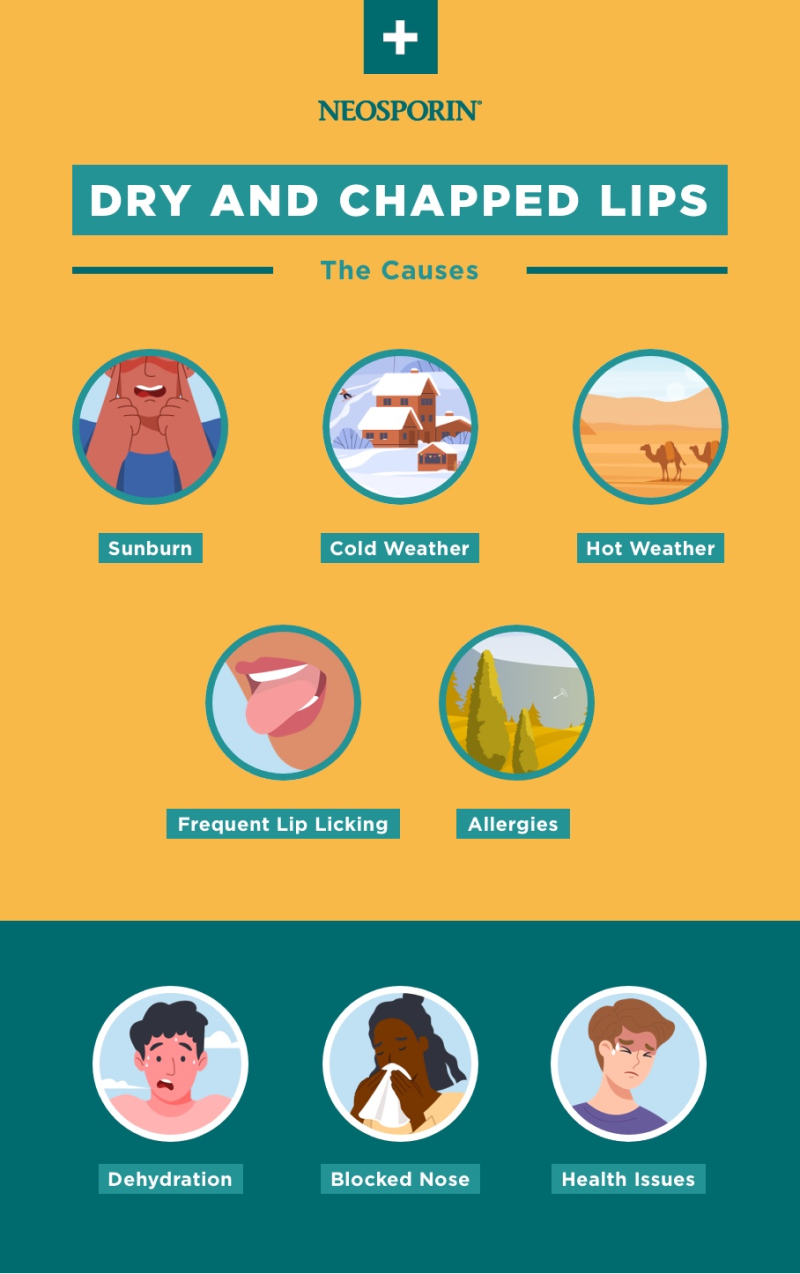

Sunburn
Your lips are often exposed to the sun, leaving them vulnerable to sunburn.2 If you burn the sensitive skin on your lips, you may notice it become dry and start to peel or flake.2 The more severe the sunburn, the more severe your chapped lips will be.
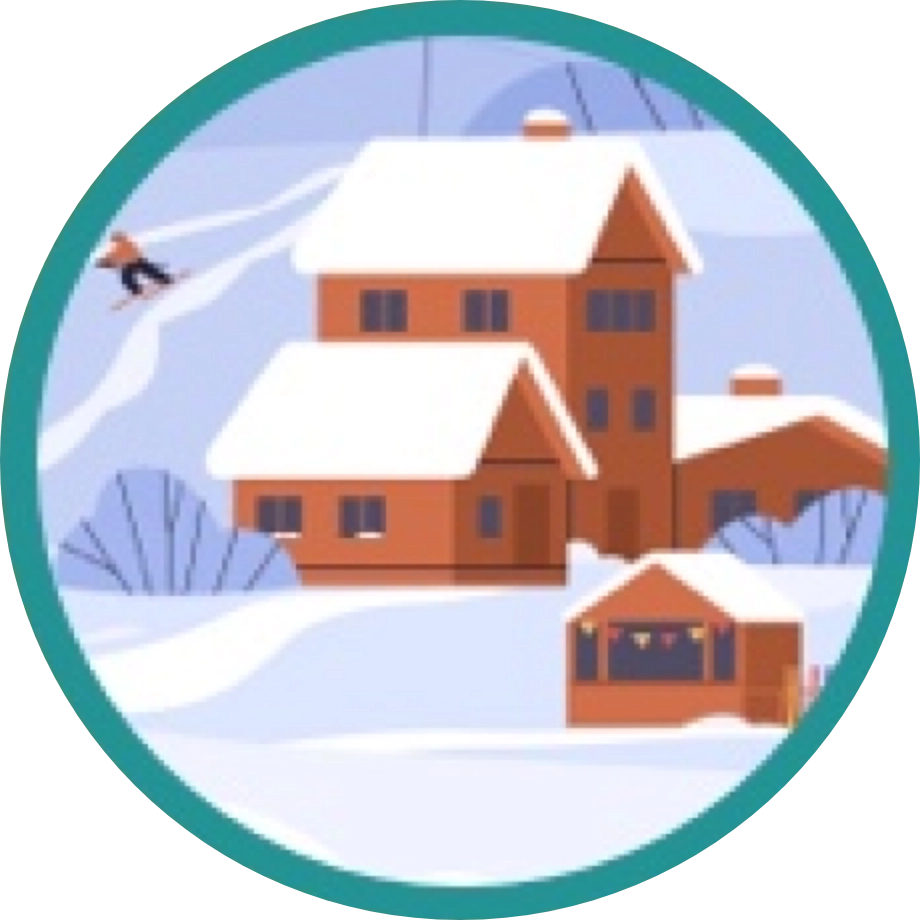
Cold weather
Cold weather and chilled winds often combine with dry, heated indoor spaces during the winter months.3 This can strip your lips of moisture and cause them to dry out.3

Hot or dry weather
Similar to cold weather, warm and dry conditions can also lead to a lack of moisture in your lips, resulting in dry, flaking skin.4
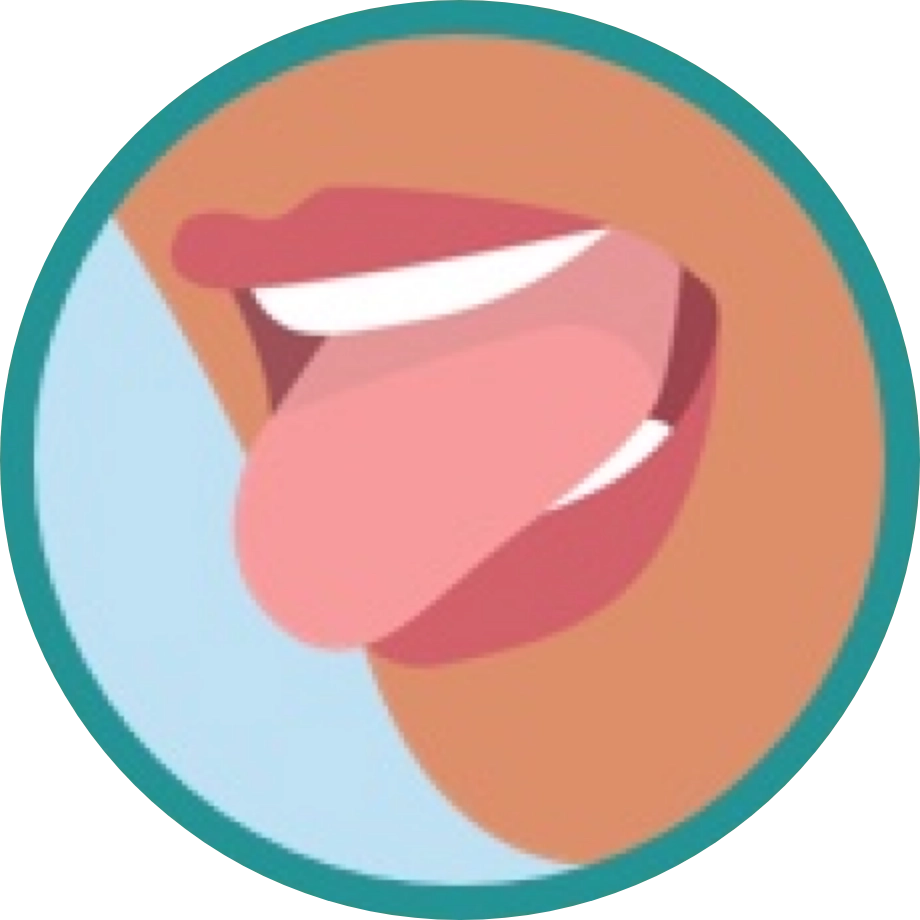
Frequently licking your lips
When you lick your lips, you coat them in a thin layer of saliva, which then evaporates, leaving your lips even drier than before.5

Allergies
Coming into contact with an allergen or irritant is another typical cause of chapped lips.6 Allergens can irritate the skin on your lips, causing them to dry out and crack.6
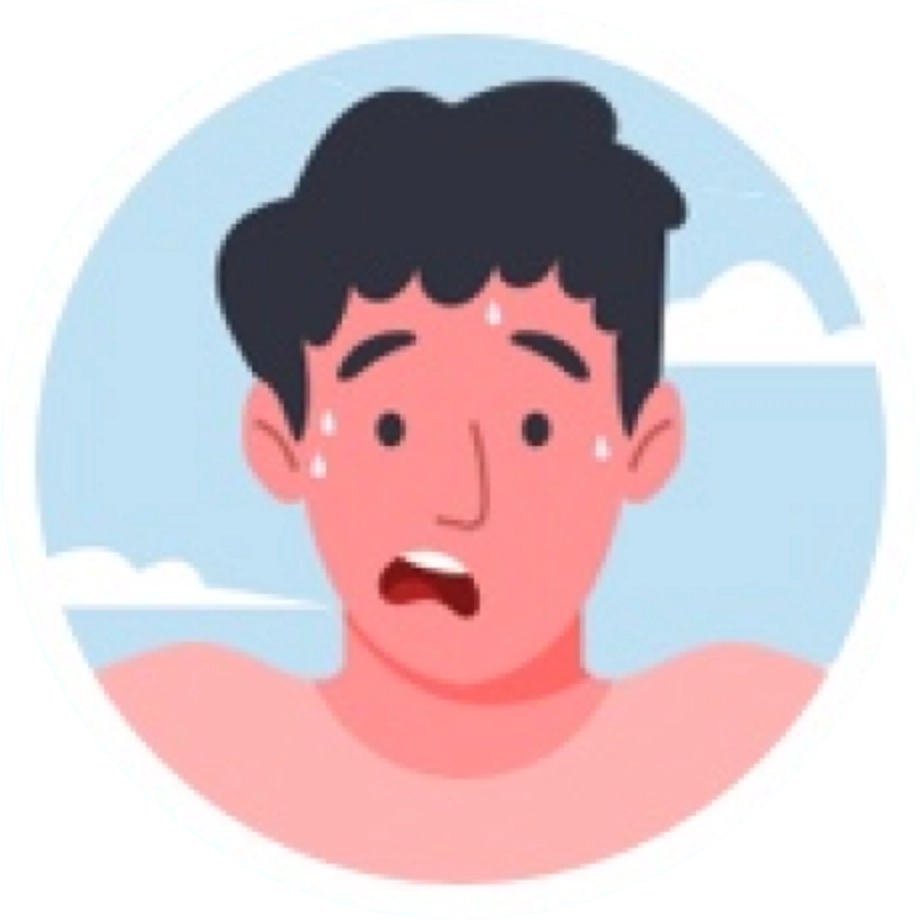
Dehydration
When dehydrated, our bodies are deprived of moisture.7 This can cause our skin – including our lips – to dry out and become cracked or peeling.
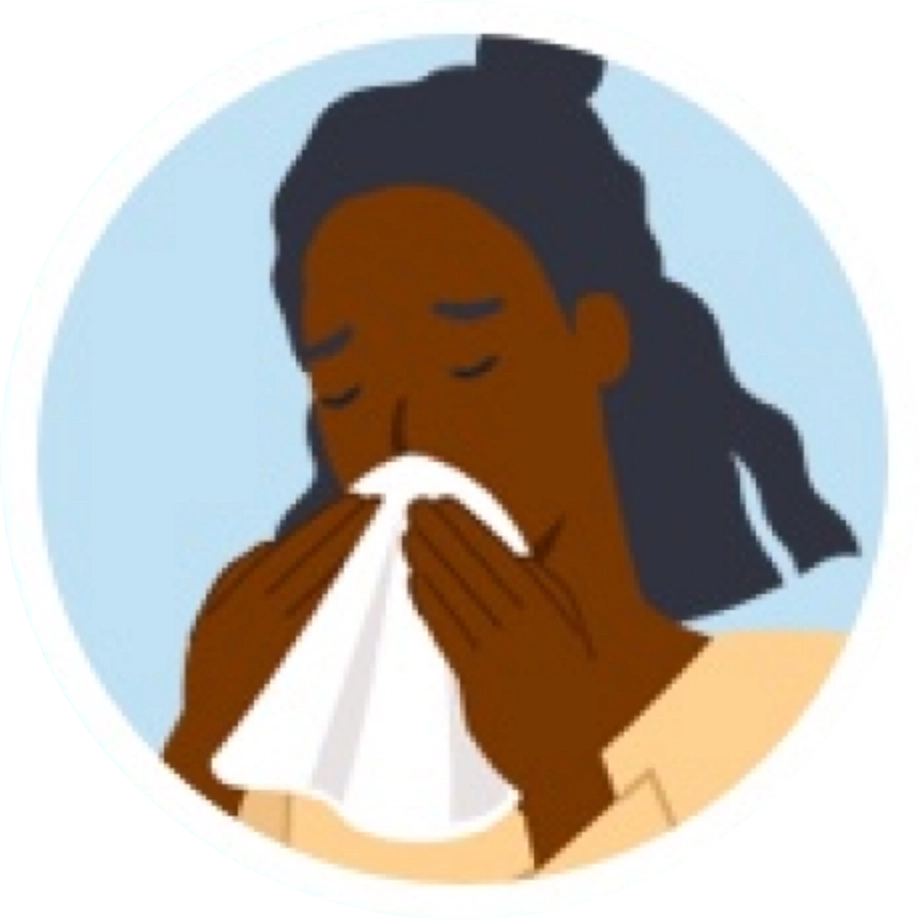
Blocked nose
Having a blocked nose can force you to breathe through your mouth, which can dry out your lips and increase the risk of them becoming chapped.5
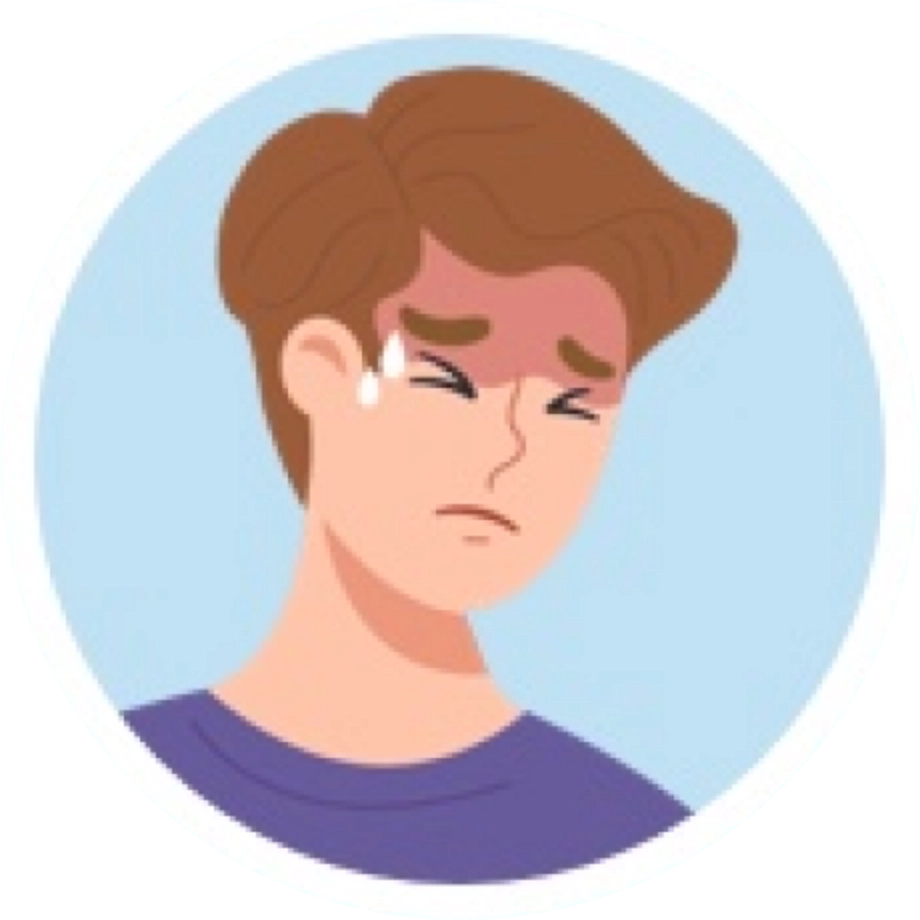
Existing health conditions
Some medical conditions can hamper your body's ability to produce moisture, raising the risk of chapped lips.6 Examples include:
Thyroid disease
Vitamin deficiencies
Crohn's disease
Inflammatory bowel disease6
Causes of chapped lips in infants
Infants will often get chapped lips through dehydration, although they may be impacted by any of the symptoms listed above too.7
How to Get Rid of Chapped Lips
While chapped lips might be a nuisance, there are plenty of chapped lips remedies you can try to ease the discomfort and encourage healing. Here are some of our top tips on how to heal cracked lips.
Lifestyle changes for chapped lips
Stay hydrated – Drink plenty of fluids to keep your body hydrated so that it can keep your skin moisturized
Avoid licking your lips – If your lips feel dry, it can be tempting to wet them with your tongue and saliva, but as the saliva evaporates, it can dry your lips out more
Don't pick or bite the peeling skin – It might feel better immediately after when your lips feel smooth again, but picking at flaking skin can make the cracks in your lips bigger in the long-run
Use a humidifier – A humidifier can add moisture to the air in the room it's placed in, which will help protect your lips and reduce the risk of them drying out
Use a moisturizing lip balm – Applying a lip balm can help moisturize the skin on your lips and reduce the chances of them becoming chapped. A balm with sun protection factor (SPF) will help protect your lips from the effects of the sun too
Can You Use Neosporin on Chapped Lips
While regular NEOSPORIN® wound care products are not suitable for chapped lip treatment, the NEOSPORIN® LIP HEALTH® Overnight Renewal Therapy® is.
How to get rid of chapped lips with NEOSPORIN®
NEOSPORIN® LIP HEALTH® Overnight Renewal Therapy® is clinically proven to restore visibly healthier lips in three days. Using a unique combination of antioxidants, essential lipids, vitamins and moisturizers, our lip protectant helps to repair and nourish your lips as you sleep. Its occlusive formula is designed to hydrate your lips overnight, improving healthy lip tone and treating any dryness and cracking.
How To Use
NEOSPORIN® LIP HEALTH® Overnight Renewal Therapy® is one of the best remedies for chapped lips available. In fact, this highly rated lip protectant is clinically proven to restore visibly healthier lips in three days.
Simply apply treatment to your lips as part of your nightly routine and let it soak in overnight.
FAQs
Why do my lips get chapped when I have a cold?
When you have a cold, your nose is likely to feel blocked, which can make it difficult to breathe through your nose8. This means you're more likely to start breathing through your mouth, which can dry out your lips and cause them to become chapped5.
How long do chapped lips take to heal?
With some self-care, chapped lips should heal within two to three weeks9. If they don't clear up, you should speak to your doctor or a dermatologist to determine how to treat them9.
How to heal cracked lips fast
Applying a soothing balm or moisturizer to your cracked lips is often the best way to heal them. NEOSPORIN® LIP HEALTH® Overnight Renewal Therapy® works as you sleep to revitalize and heal chapped lips in as little as three days.


